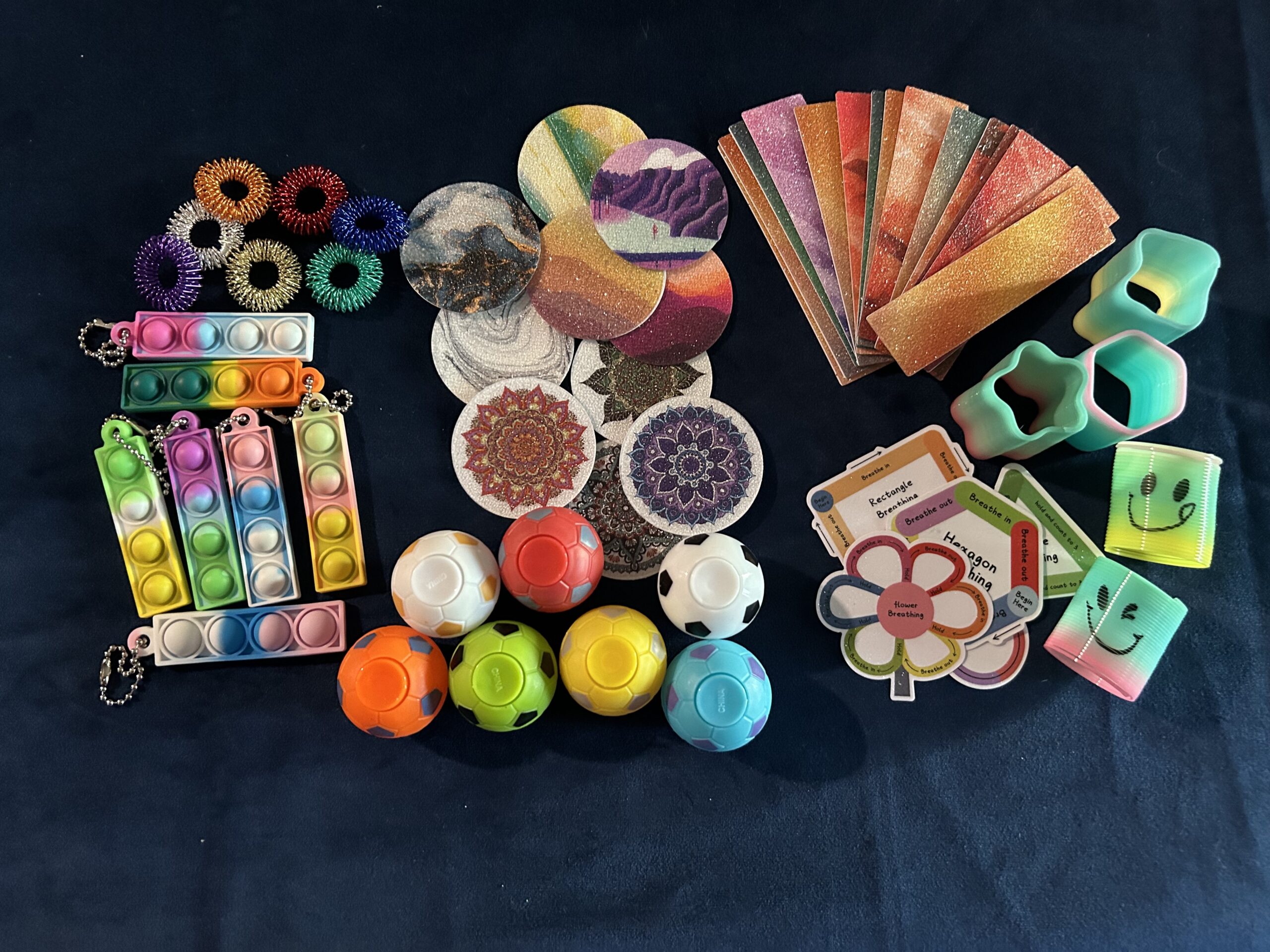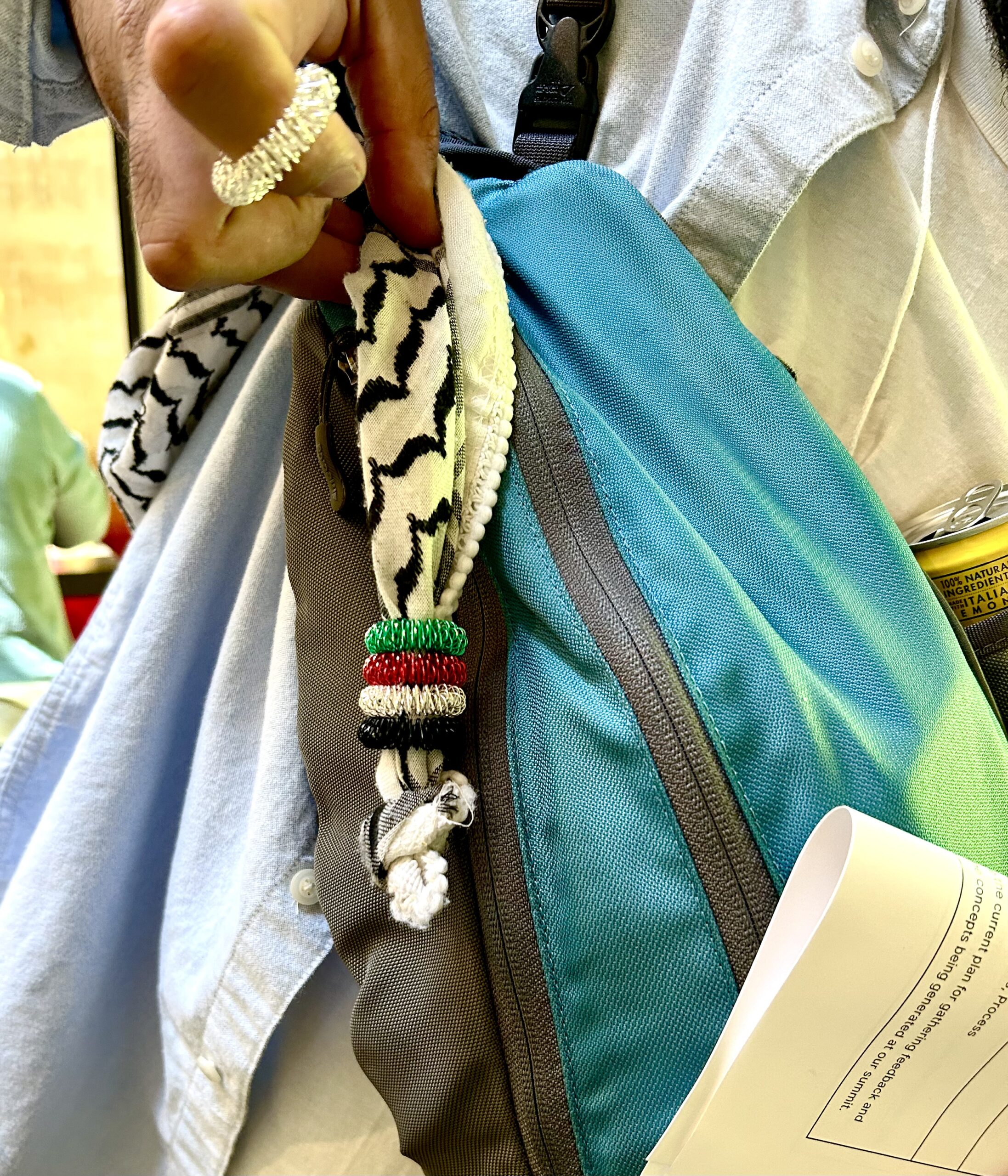As part of Vancouver Foundation’s latest initiative, the Just and Sustainable Futures Fund, LET’S consulted as a Community Advisor. The fund is a grant stream “[to] invest in the self-determination of people most impacted by systems of oppression, to support the conditions for a just and sustainable future to emerge for all.”
Last month, we interviewed 3 community members and storytellers. The next step was a 3 day summit at The Brew Creek Centre in Whistler. Community advisors came together, with staff of Vancouver Foundation, to share what our storytellers had relayed.
LET’S offered to provide sensory items for all participants. Little did we know how vital bringing the sensory items would be for those who participated. Unfortunately, the way the process was planned and facilitated had many issues. There was a definite lack of cultural and psychological safety.

The issues actually started with the questions provided to community advisors to ask the storytellers. They were very broad and hard to answer. The 3 people LET’S interviewed were unsure if they were giving answers that were in keeping with what Vancouver Foundation was trying to learn. The questions asked participants to share examples of when they had experienced a just and sustainable situation. At the summit, the majority of participants said that the community members they interviewed have not experienced that within their lives.
The way the process was designed, and the agenda, was built in a way that did not properly incorporate community knowledge and experience. Nor did it incorporate appropriate opportunities to create trust in the space before jumping into intense conversations.
Unfortunately, the facilitators that were chosen were not from identities of marginalized populations. This created a barrier, and a disconnect, right from the start. Throughout the first 2 days, there were several missteps and comments that needed to be called out and addressed. The facilitators changed on the 3rd day.
The environment was such that participants did not feel secure in sharing their community members’ stories. Several Community Advisors felt pressured to share personal information. There was a lack of opportunity to build trust and that affected the overall experience.
The agenda that had been planned for the process was completely changed. Participants called in how the process was not equitable. A concern that LET’S raised was that Vancouver Foundation asked us to gather stories than break them down into a form that Vancouver Foundation asked us to fill in prior to the summit. LET’S had refused this and provided the entire interview (unless participants had asked for something to be removed). It is not equitable or just to filter other people’s experiences or words. We should not be the ones deciding what should be shared. We also mentioned that it was a disconnect to invite storygatherers to the summit but not the storytellers. Instead, the storytellers should have been the ones invited to the summit to share their stories in their own way.
Another concern that we named was holding the summit at The Brew Creek Centre. While the staff, location, and food were all great, it must have cost Vancouver Foundation a lot of money. Money that could have been used by the many communities represented by the storygatherers.
As the process continued, past the summit, not all storygatherers agreed to have their storytellers’ stories used by Vancouver Foundation. On the 3rd day of the gathering, we had several people who left and either stayed away for a few hours or refused to return because of the harm they had endured.
Thankfully, there were a few things that did work. The opportunity for the Community Advisors to meet one another and connect, both personally and professionally, was great and very much utilized. Within these relationships, there was support, moments of joy and connection, and the ability to examine and reflect the gatherings. The agenda did not allow for enough time for these relationships to develop and that was certainly noted.
A saving grace of the summit was the attendance and participation of Elder Yvonne Rigsby Jones (Snuneymuxw First Nation, Coast Salish) and Elder John Jones (Tseqalmit). Their stead presence and wise words helped alleviate some of what occurred. They were available within the group sessions and for 1 on 1 conversations. They also utilized Cedar in several ways to bring in a more positive energy. Cedar is used for healing, wellness, and ceremony. Many (but not all) Indigenous communities consider cedar to be 1 of 4 sacred medicines. The others being tobacco, sage and sweet grass. Elder Yvonne and John provided a steady, calm, warm, and comforting energy. Their perspectives and insights throughout helped to lessen the tension. Their presence was vital to the entire experience and very much appreciated.
As the summit was emotionally intense, the sensory items were very much appreciated and utilized. In some moments, it was so intense, that participants rubbed the colour off their acupressure rings. LET’S was thanked by all participants for providing a way for them to release and regulate emotions.

In response to all the feedback, Vancouver Foundation staff went back to work and had discussions about how to proceed. They provided Community Advisors with a survey to gather more information. Vancouver Foundation shared the results with participants. It included the following:
“Your contributions have given us (and continue to give us) the foundation to realign our efforts and the collaborative work we are doing to establish the Just and Sustainable Futures Fund.
While some found meaningful connections–particularly on day 2 during the reintroduction circle and in-between summit spaces (meals, walks, etc), we also recognize and acknowledge that a few of you did not feel psychologically safe and experienced harm along the way. As VF staff, we are convening this week and next week to thoughtfully respond to issues that arose. We don’t have all the answers right now, and we feel the importance of slowing down, reflecting and responding properly in the coming days and weeks. In the meantime, we really appreciate and value your patience as we work through some post-summit logistics.”
LET’S is interested to see what the next stage is for this project and how Vancouver Foundation will adapt to the provided feedback.
